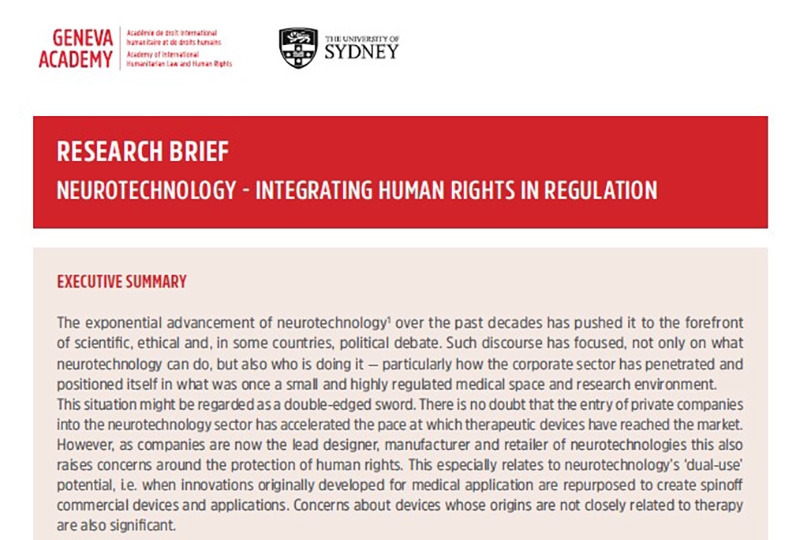15 April 2025
Our new research brief 'Neurotechnology - Integrating Human Rights in Regulation', co-authored by Dr Erica Harper, Head of Research and Policy Studies at the Geneva Academy and Dr Allan McCay, Academic Fellow, Sydney Law School and Co-director, Sydney Institute of Criminology, examines the human rights challenges posed by the rapid development of neurotechnology. As the field grows, the paper addresses the increasing role of the private sector and the potential for neurotechnologies to be misused, raising important ethical and legal questions.
The paper discusses concerns related to privacy, freedom of thought, and the use of neurotechnology in both therapeutic and commercial contexts. It highlights the risks associated with the 'dual-use' nature of some innovations, where scientific and engineering developments that may lead to highly beneficial applications such as those providing forms of therapy might also facilitate more troubling use cases. The authors argue that these developments could impact fundamental human rights, particularly as companies are the primary players in the neurotechnology sector. In addition to addressing the need for regulatory frameworks, the paper calls for careful consideration of issues such as data privacy, consent, and the role of neuro-enhancement in society. It also discusses the implications of using neurotechnology in criminal justice, particularly regarding the use of brain data to infer mental states.
This research follows an event held in April 2024 at the University of Sydney, where experts from various fields discussed the future of neurotechnology. The paper's findings will contribute to ongoing discussions by the Human Rights Council’s Advisory Council, which is preparing a study on the human rights implications of neurotechnology.









